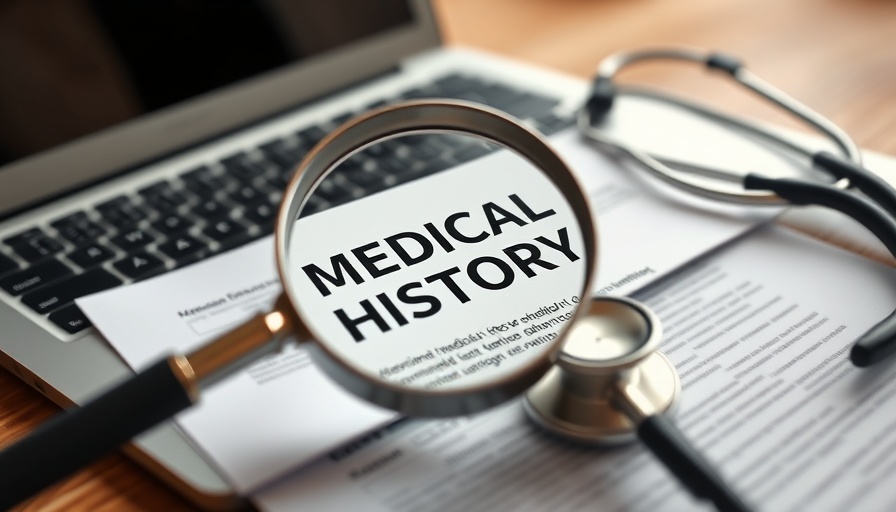
Health Care Data: A Hidden Market
In today's digital world, the vast scope of health care data being bought and sold has raised eyebrows, especially for the elderly and their caregivers. Pharmaceutical companies are increasingly purchasing de-identified health care data, including prescription and insurance details, which allows them to target specific doctors who might not be promoting their medications. This practice is part of a booming $9 billion industry that operates largely under the public radar.
Legal But Controversial: Understanding HIPAA
Many might believe that the sale of personal health information breaches privacy laws. However, under the Health Insurance Portability and Accountability Act (HIPAA), pharmaceutical companies can legally purchase and use de-identified data—meaning it doesn’t contain personal identifiers, such as names. As Dr. Adriane Fugh-Berman from Georgetown University Medical Center explains, the data reveals significant details about patients while remaining compliant with existing privacy laws. This legal loophole highlights a concerning dissonance between consumer privacy expectations and actual regulations.
How Do They Know What You Take?
Pharmacies contribute significantly to this data-rich environment by selling prescription records that have been stripped of personal identifiers. Even with these safeguards, the American Medical Association offers companies access to its physician master file, which includes nearly all doctors’ license information. This empowers drug manufacturers to target their marketing to physicians, knowing exactly what medications they prescribe and potentially for what conditions. Such practices can create ethical dilemmas, especially when it impacts treatment options for the elderly.
The Uneasy Truth Behind Data Utilization
Perceptions about the use of this de-identified data are polarized. On one hand, some argue that because individual identifiers have been removed, privacy is safeguarded. Others, however, express unease about how this information can influence clinical decisions, potentially prioritizing pharmaceutical sales over patient health. This scenario brings to light the vital conversation around data ethics and patient care amongst senior living communities.
Implications for Caregivers and the Elderly
Understanding the nuances of this data exchange is crucial for caregivers and families of the elderly. Knowledge about how health data is commodified can empower them to make informed decisions regarding medication and treatment options for their loved ones. In an age where digital privacy is paramount, being aware of how data drives decisions in healthcare can assist caregivers in advocating for their patients more effectively.
Senior Care Solutions: Navigating the New Landscape
As the dynamics between Big Pharma and health care data continue to evolve, it becomes increasingly essential for those in the senior care sector in Muskegon to remain informed about changing insurance options, including long-term health coverage. Comprehensive understanding enables better advocacy for necessary health services and the securing of appropriate elder support services. This information can also help caregivers connect with various community resources and embrace solutions that prioritize patient welfare.
Encouraging Transparency in Data Practices
Ultimately, the conversations around patient data usage raise critical questions: How can families and caregivers ensure their loved ones receive unbiased, quality health care? What steps can be taken to foster more transparency in health data handling? Engaging with elder care education resources and community discussions can illuminate best practices, encouraging a more patient-centric health system that recognizes the unique needs of seniors.
Conclusion
As senior living expenses and care considerations grow increasingly complex, remaining vigilant about changes in health data practices is vital. Advocates for the elderly must demand transparency and support structures that prioritize individual patient health over corporate profits. Armed with this knowledge, families and caregivers can navigate the landscape of health care with greater assurance and security.
 Add Row
Add Row  Add
Add 




Write A Comment